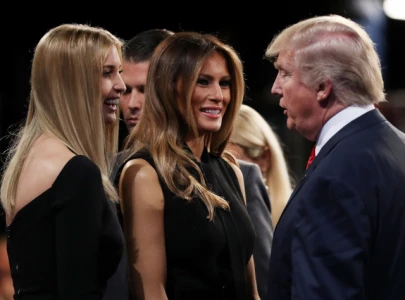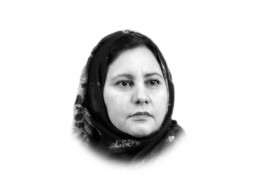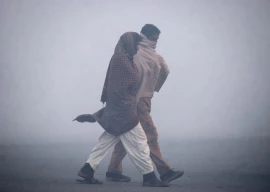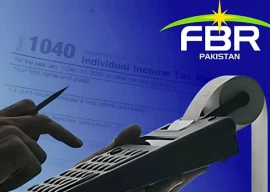
More than ever, it is now vital for Pakistan to build on this historic achievement by ensuring that the transfer of power to the next government takes place through a credible electoral exercise.
Several relevant suggestions have been identified by think-tanks and experts in this regard. A roundtable organised by the Jinnah Institute in Islamabad recently highlighted key challenges to free and fair elections. The Pakistan chapter of the Brussels-based International Crisis Group has also published a policy brief “Election Reform in Pakistan”. It is also encouraging to see media reports emphasising expert views in this regard.
The need for the Election Commission of Pakistan (ECP) to play a pivotal role in conducting the next general elections seems vital. Rigged elections and other distortions of election processes by military-controlled governments had corroded the credibility and capacity of the entity. Politicians have taken a step in the right direction by making the appointment of the Chief Election Commissioner transparent and subject to parliamentary oversight in accordance with the Eighteenth Amendment. The ECP must now urgently begin to address errors and omissions in the electoral rolls, which is no small task, given that an estimated 3.9 million eligible voters need to be registered.
Political heavyweights should show further foresight by transcending personal political agendas and reach consensus on neutral caretakers for a seamless election transition period. Unless this happens, Pakistan will be under increasing international pressure to put in place caretakers of the kind that were installed in the 1990s, who consented to a range of economic conditionalities, which became a source of much contention thereafter.
Political parties can also use their networks to encourage all people of voting age within their constituencies to get NADRA-issued computerised national identity cards, which will not only help politicians secure votes but also increase our voter turnout and make our citizenry eligible to a range of other social services.
Polling procedures have to be improved, too, and their locations decided well in advance of the actual polls. The ECP should pay heed to the criticism of the newly formulated ban on politicians transporting voters to the polls, since lack of transport may prevent many genuine voters from reaching polling stations. At the same time, the average voter must also be encouraged to let go of biradari/tribal affiliations, which continue bringing in traditional power elites to the political front and subsequently block attempts to address structural inequalities through effective land reforms or progressive taxation.
The fact that about half of Pakistan’s voters are new, young voters, under the age of 30, is, however, a sign of hope. But while analysts foresee an increase in the number of young male voters during the coming elections, at the same time young female voters and women, more generally, will probably lag behind at the polls, particularly in rural areas. To bolster women’s representation, the ECP has been advised to monitor electoral turnout and results at both female and combined polling stations and impose penalties on those who prevent women from voting. The media can also show more maturity and begin highlighting these important issues instead of patronising particular politicians.
With elections just months away, clearly a lot still needs to be done. Despite the range of other problems that the country is contending with, these electoral reform issues do merit close attention, given their potential in helping achieve the long-standing goal of finally stabilising the democratic process in our country.
Published in The Express Tribune, August 28th, 2012.
COMMENTS (7)
Comments are moderated and generally will be posted if they are on-topic and not abusive.
For more information, please see our Comments FAQ

1726117332-0/Megan-Thee-Stallion-(1)1726117332-0-165x106.webp)

















@Team Pakistan: Thank you but I do consider it as Democracy in the making.
Nothing has changed, nothing will change for the people of the world through this " Opium" called "Elections." Nothing will change until until people, all people,will be prepared to take the courageous initiative to come to unite. It is true people make the most fatal mistake of looking towards these poltical parties and their leaders to take this initiative. It has been a futile hope. It is a futile hope. Why do they not see that those leaders and political parties have been unable to deliver to them what they need all these years. The system "Ruler and the Ruled", an outcome of the drama called elections, is sheer injustice. Injustice is lawlessness. Lawlessness breeds lawlessness and resultant violence and bloodshed. So, Oh' people come together. Come together to eliminate all injustices. Come together to eliminate the unjust system of "Ruler and the Ruled". This is the way, only way to the unity we all need most. We the people have to do it ourselves as no one will come to do it for us. Yes we have to do it ourselves or else. Or else SLAVERY will remain our fate as it has been for all theese years.
Throughout history, it has been the inaction of those who could have acted, the indifference of those who should have known better, the silence of the voice of justice when it mattered most, that has made it possible for evil to triumph” ~ Haile Selassie.
I am afraid that the rightwing losers would not accept their defeat in the elections. They never did and they never would, it is their mindset that cannot be changed. It is like picking up a stray kite, if I do not get it then I would tear it and nobody would get it. Here the country is kite and the losers are the looters. That is why these elements are already dreaming of generals and dictatorial rule. However, this is 21st century and nobody can commit the acts of high treason against the will of the people. Whether they like it or not the elected govts would complete their terms even though the PCO judges have assumed the role of generals. One must remember that it was not just Gen Zia but the LHC and SC judges who hanged the first elected PM.
PTI will emerge a winner...Inshallah
@Manoj Joshi: we are not interested to read a column in column :P
The Islamic Republic of Pakistan as a nation has probably for the first time been able to almost complete the five year term of the National Assembly which in itself must be considered as an achievement. As a nation making comparison of this Islamic Republic with their neighbour The Republic of India would really not be an appropriate comparison to do. India has been a democracy since her independence and this plant of democracy has been nurtured by the Indian leadership; although there have been certain dark phases of Indian democracy; but on the whole democracy in India has reached the level of maturity. Pakistan since 1958 with the first army take over under Field Marshal Ayub Khan followed by the second coup by General Zia-ul-Haq and finally by General Parvez Musharraf on 12 October 1999 has not had a steady spell of democracy which has been their major political and constitutional misfortune and religious fundamentalism has further damaged their society to an extent that democracy has not been able to get the desired environment to develop. The elections held in 2008 in Pakistan have for the first time brought a democratically elected government that has been able to almost complete their complete tenure and now with the elections fast approaching the next government must carry on with the same responsibility the democratic conventions. Although there cannot be overnight wonders and democracy will need time to take roots in The Islamic Republic of Pakistan in a rather challenging environment where religious fundamentalist groups and terrorist organisations still hold a sway in the corridors of power. The nation has to fight a rather challenging war against religious fundamentalism to make democracy take strong roots in the Islamic Republic and this certainly cannot be an easy going. This does not in any way mean that Pakistan does not have the potential to become a democracy but for the fact that they as a nations shall have to face the strongest challenges and at times their can be certain setbacks too which all have to be taken in the stride. The citizens of Pakistan have to now come forward to make democracy a success in their own country. A new horizon towards a Moderate, Progressive and Democratic state where the majority and the minorities co-exist amicably. Economic relations with the neighbours is another important development most essential for the development of democracy as this will help Pakistan in developing their infrastructure as well as economy. There is an optimism poignant and is visible in the intelligentsia of Pakistan which should get converted to a reality at the earliest for which efforts need to made with earnest.
An Emergency-would be most appropriate-rather then an Election!